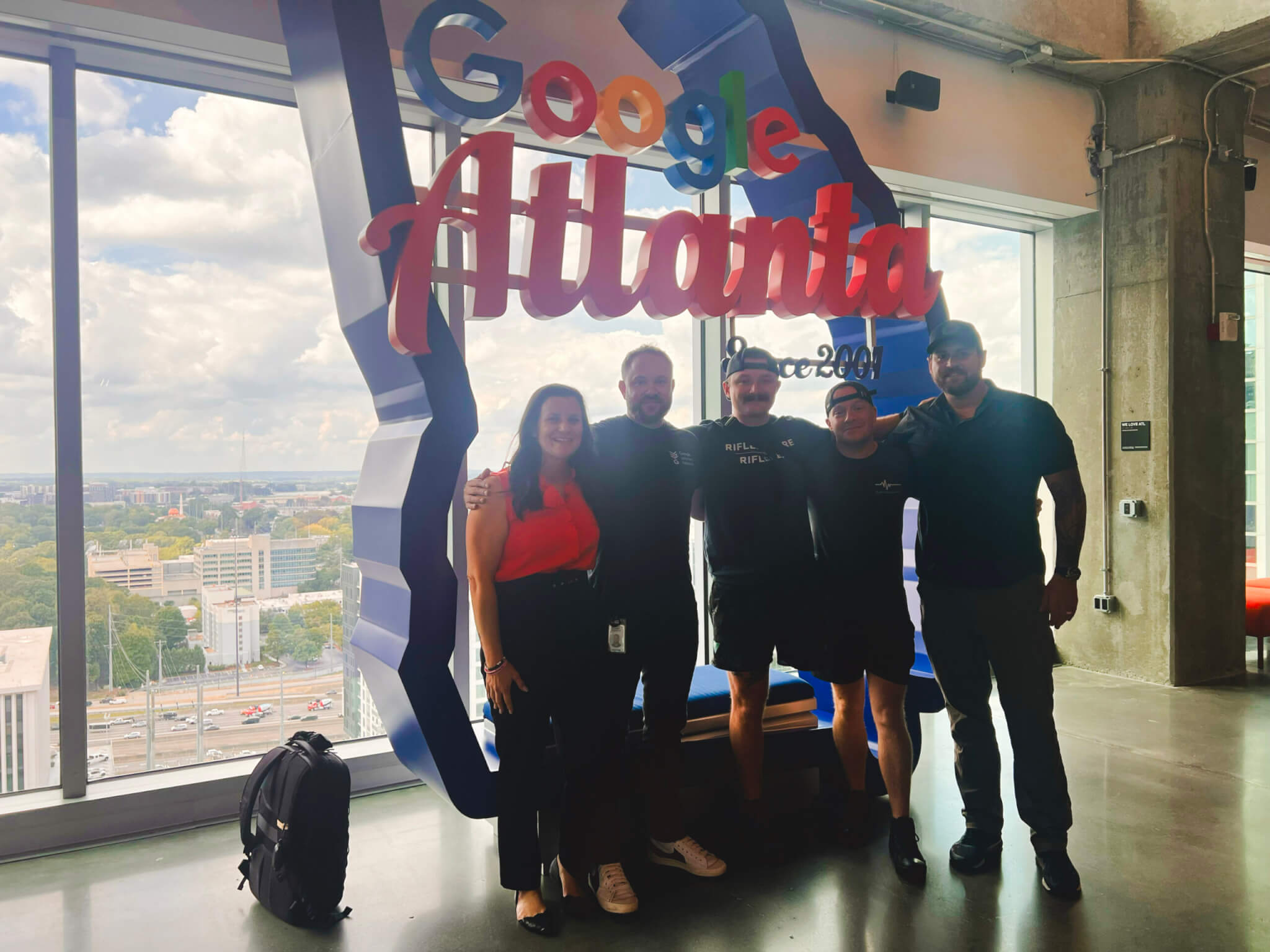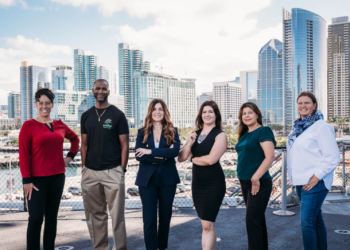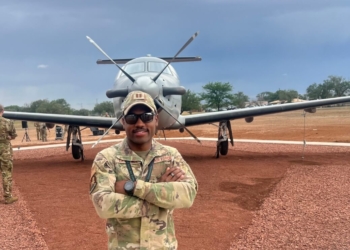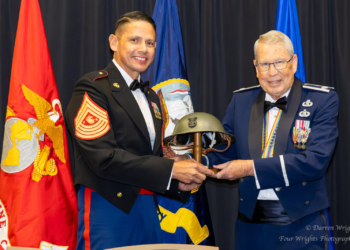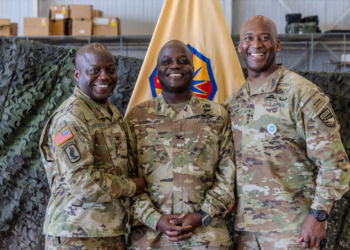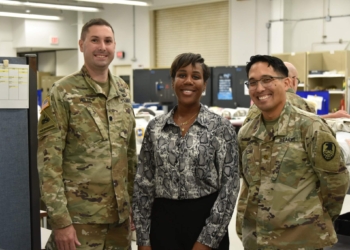Midwest native Timothy Warnement is leading strategic partnerships for veterans at Google and YouTube but before he was working with the likes of Shawn Ryan or Donut Operator, he was a soldier.
“I had two uncles that were in the military; one in the Navy and one in the Air Force. I think after 9/11 I just felt like I could do more,” he explained. “I was going to college but I was just having a little too much fun and I wanted a little more structure.”
He found it with the Army, enlisting to become a “human intelligence collector” in 2006. Warnement’s first duty station after boot camp and his initial training was at Fort Wainwright in Alaska. His unit deployed to Iraq to support counter terrorism from 2008-2009 and during that 13 month rotation, he completed his undergraduate degree in criminal justice.
“We went from minus 50 degrees to 120 degrees for 13 months,” he laughed.
From Iraq he was sent to southern Italy to be a counterintelligence special agent with NATO for three years and was deployed to Kosovo in 2012. Warnement had always told himself he’d stay in as long as he kept enjoying it and felt challenged. The work wasn’t easy but he found it fulfilling, he added. A year later and after almost eight years of counterintelligence for the Army, he was ready to find a new mission.
“I always told myself I was going to have a plan and thankfully I had a job lined up in D.C. with Booz Allen Hamilton as a counterintelligence analyst with the FBI. My work was with the Foreign Terrorist Tracking Task Force,” he said.
Warnement spent a few more years serving the government by using his skills at the Department of Health and Human Services as well as the U.S. Department of Treasury.
 In 2018, a shooting at YouTube’s headquarters in California unfolded when Nasim Aghdam opened fire outside a building. Aghdam, an Iranian national and a content creator, had expressed frustration with the platform’s policies. She targeted the company’s employees, injuring three before taking her own life. In the wake of the shooting, YouTube intensified its security measures and initiated a broader conversation about workplace safety in the tech industry, emphasizing the need for support systems for employees facing harassment or threats.
In 2018, a shooting at YouTube’s headquarters in California unfolded when Nasim Aghdam opened fire outside a building. Aghdam, an Iranian national and a content creator, had expressed frustration with the platform’s policies. She targeted the company’s employees, injuring three before taking her own life. In the wake of the shooting, YouTube intensified its security measures and initiated a broader conversation about workplace safety in the tech industry, emphasizing the need for support systems for employees facing harassment or threats.
That’s where Warnement came in.
“We started to notice there was a population of folks like veterans, firearm creators and pranksters who operate on good intent to follow our policies but don’t necessarily understand them,” Warnement said. “I had worked in that area of YouTube for so long I just figured we needed to educate them and bring them back as good citizens on the platform. We set up a program to essentially allow for that to happen and that’s where I transitioned out of the threat area into more people or creator management and brand risk – kind of like prevention.”
He leaned on his work as a soldier and gathering human intelligence.
“I think removing the emotion is super critical and that’s a conversation we’ve had to have a lot with people like policymakers, decision makers and even with executives,” Warnement explained. “If I learned anything during my time in the military it was building relationships and rapport. One thing I’ve never shied away from, even at Google, is that it’s important to call out that everyone’s different and populations and verticals of like content are different.
Censorship is a hot topic in the news as the country continues to be divided on how to approach social media platforms and how the first amendment applies. Warnement didn’t shy away from addressing it.
“Censorship is stripping away your ability to share your opinion, thoughts, and express yourself – almost to an extreme as I see it. But what we strive for is more of a safety moderation within our guidelines. This ensures that we have not only a safe but also a reputable platform that doesn’t promote content that can harm other people or yourself,” he said.
Warnement has made it his mission to avoid what he termed “canned responses” to veteran creators who may be in violation of those moderations.
“YouTube is viewed as this massive global conglomerate machine. But my job is to humanize and to reach out and say – we are people, and sometimes, people make mistakes,” he said. “We review millions of inquiries a day and how do we do it at scale and get it right? And it’s letting people understand we’re also human so work with us and we’ll work with you.”
As he continues in his role as partner manager for YouTube, Warnement expressed excitement in seeing more and more creators from the military community rise. Reflecting on finding identity after service, he remains fully grateful for the experiences but secure in who he is.
“I’m not out there making content or promoting mental health but I absolutely use those resources. For me it’s important to understand what I can do to be a force multiplier for those who are actually doing this work,” Warnement said. “This comes with using my role to help those veteran content creators and helping them become successful.”
He added that he uses his experience as a veteran “in every way I can, but I do my best to support the community without being the face. I’m content serving quietly behind the scenes.”
Read comments

